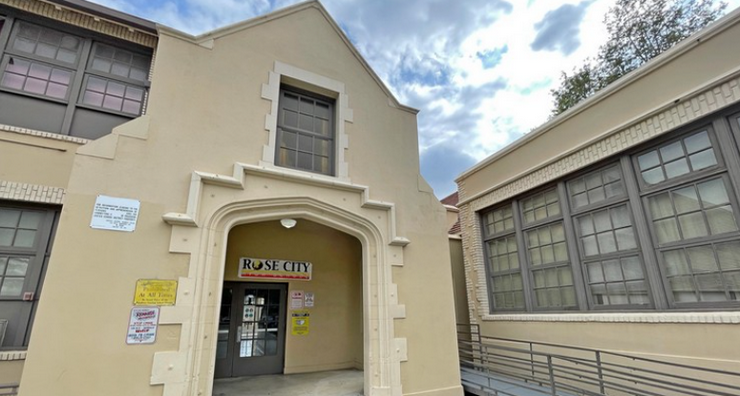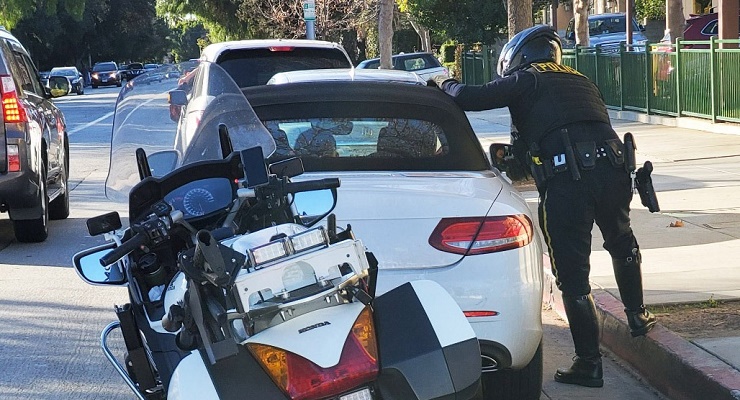In a presentation that was more circumstance than pomp, Mayor Terry Tornek delivered his first “State of the City” speech on Wednesday evening at the new McKinley School Gymnasium with only one subject on the table — the City’s finances.
Before a full house of elected officials, government, education and civic leaders and residents, Tornek said, “There are lots of exciting and positive things happening in Pasadena: new projects, new department heads, new initiatives, but I am not going to review them tonight. They are described in various City publications.”
“There are also lots of challenges, like hiring a new City Manager, and proposals related to the Rose Bowl, police oversight, minimum wage, recycled water — also not on tonight’s agenda,” Tornek continued.
Differing from previous State of the City speeches which generally highlighted the city’s achievements of the past year and goals for the coming year, Mayor Tornek chose to concentrate on the City’s budget.
In a strict reading of the City’s Charter, Tornek explained to the crowd that a Charter provision passed by the voters in 1998 requires that “in January of each year, the Mayor present a thematic budget message for the stated purpose of receiving and considering public suggestions and comments on the City budget prior to its preparation and ultimate approval by the City Council.”
“My speech tonight begins a new tradition of focusing on the City’s budget priorities as required by our Charter,” he said.
There was even a quiz for those who were taking notes.
“The City Charter is very clear over what the Mayor is supposed to be doing in January,” Tornek told Pasadena Now later in the evening. “What the Mayor is supposed to be doing is delivering a budget message. Even calling it the ‘State of the City’ is a bit of a question mark. It got sort of conflated with what the president does in Washington. It’s a very different situation, the Mayor is not the President, and the way our (local) government works is not the same as Washington. I just thought it was time to make a clear departure from the way we’ve done this event in the past.”
In the address, Mayor Tornek emphasized the idea that the city has little control over its revenue growth, and that pension costs for city employees have risen dramatically—more than 100% in five years—and will continue to do so. He also said that the city needs to upgrade its citizen awareness and “oversight of finances.”
“Everything that the City undertakes depends upon our available resources,” he said.
The Mayor then presided over a large-scale Powerpoint presentation that explained, with graphs and charts, the city’s revenues and expenses.
FOR A COPY OF MAYOR TORNEK’S SPEECH, CLICK HERE
According to the Mayor, the city earns $224 million in revenue, from four sources— property taxes of $53 million, sales tax of $34 million; utility users tax of $30 million; and a transient occupancy tax from hotels of $14 million. Another $93 million is earned from various charges, fees, and “unpredictable government transfers,” he explained.
Since 2008, sales taxes have remained about the same, Mayor Tornek reported, while property taxes have grown by 56 percent, largely thanks to new developments. Revenues from a utility users tax is essentially flat, even though utility rates have risen, because utility demand is down, with people using fewer landline and cable television services.
And although the city’s transient occupancy tax is growing, it remains s a much smaller source than other sources of revenue. In addition, 60 percent of those fees are “already committed to the Convention Center,” the Mayor explained.
Thus, increased development and rising property values will continue to be the City’s primary source of revenue, with “no likely method of bending these revenue curves upward in any significant way,” he said.
Describing the city’s expenses, Mayor Tornek said that the city has four major costs, with an additional non-departmental $300 million set aside each year, for bond debt payments, and the like.
The Pasadena Police Department is budgeted at 65.7 million for the year, while fire services are budgeted at $42 million. Public Works is another $22.4 million, and the libraries are budgeted at $10.7 million. Human services, planning, and transportation account for another $53.3 million.
Mayor Tornek said that more than half of the city’s total costs are spent on public safety, which consumed 46.2% of the General Fund Budget in 2008 but has now grown to 53.5%. Each additional police officer costs the city $166,000 per year in total, he said.
Another growing cost, said the Mayor, is the cost of pensions for City employees. While there have been increased City employee contributions, keeping payouts somewhat consistent, costs have risen to an average of $30 million a year since 2008. For 2016, the cost will climb to $39 million, and the mayor predicted that in four years, the forecast is for “a whopping $65 million, a 100 percent increase in five years.”
Turning to the City’s debt, the Mayor said that although the City has a Triple A Bond Rating, the Rating agencies have noted that the city also has a high debt load. Pension obligation bonds have been issued for “significant capital projects,” like $119 million for renovating City Hall, a $182 million overhaul of the Rose Bowl, and $162 million for the city’s convention Center. All of these, said the Mayor, “are ultimately guaranteed by the full faith and credit of the City’s General Fund.”
Though many of the capital improvement projects are self-sustaining, Pasadena’s debt is still ten times that of Burbank.
“While the curve is declining, this high load constrains our ability to borrow,” said Mayor Tornek.
The city has also budgeted approximately $350 million over five years, for approved but as yet, unfunded capital improvement projects, such as sidewalk repair and maintenance.
Finally, the Mayor reported that the City’s reserve fund has nearly returned to its 2008 level of $54 million, after being drawn down upon by $25 million from 2008-2012, during the nation’s recession.
Following his prepared speech, the Mayor answered various questions on the City’s finances and other issues, including a plan to raise the minimum wage, which he favors.
“I feel confident that the City will make the right decision come February 1,” he said, referring to when the matter is due to be voted on in the full council. Another community meeting on the subject is scheduled for January 27.
Pasadena Chamber of Commerce President Paul Little, who was in attendance at the address, decried the raising of the minimum wage. Little said it would result in more poverty, fewer jobs and fewer brick and mortar businesses in the city, thus decreasing the City’s tax revenues. His group has been pushing for a compromise proposal of a raise to $12.50 over the next few years, as opposed to the $15 hourly wage that the City is proposing.
As the presentation ended, residents filled out “test questions” included in the evening’s program for a chance to win an emergency preparedness backpack from the City or a meeting next month with the Mayor, City Finance Director and Interim City Manager to discuss the budget.
It was that kind of an evening.














 0 comments
0 comments


